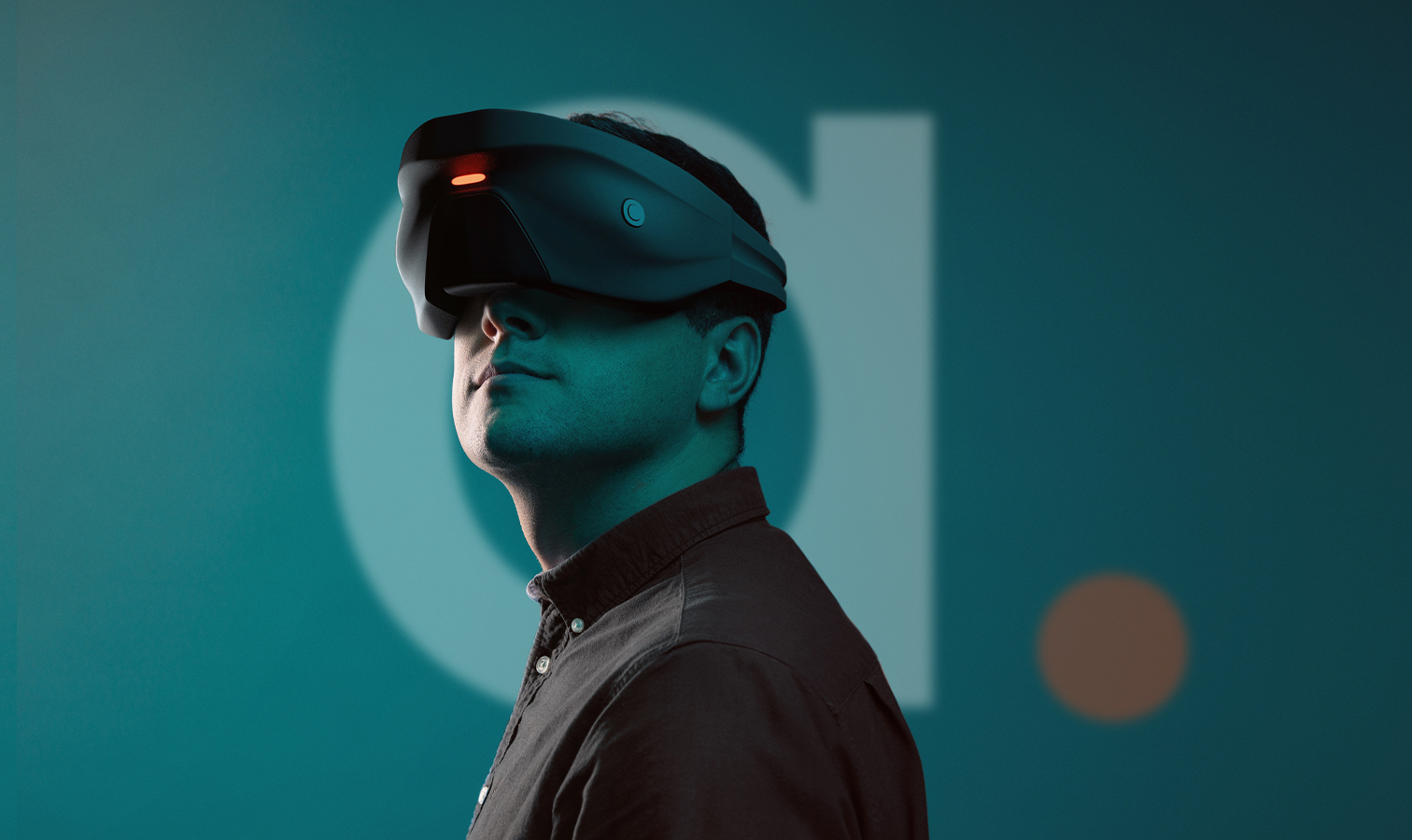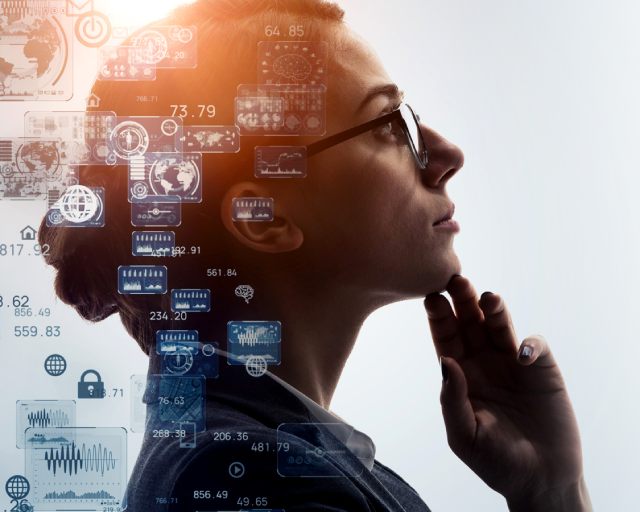What is the Metaverse?
The Metaverse can be defined as a "meta-universe", a parallel digital world in which humans connect and share experiences in a virtual universe instead of just being observers or consumers of content. To use Mark Zuckerberg's words (Facebook founder – now Meta), the Metaverse is a kind of "embodied internet" made possible by a whole set of developing and converging technologies. Simply put, people can experience an entire world in virtual mode, mobilising the body and accessing a full spectrum of sensations/emotions.
Think of the dramatic evolution of screens, VR (virtual reality) headsets, holograms, AR (augmented reality) glasses or other wearable devices. Teleportation will quickly cease to be a myth once these technologies allow us to seamlessly move back and forth between virtual spaces and physical places.
Examples of applications include business meetings organised via applications such as Teams, Zoom or Google Meet. We can easily imagine the next iteration: Meta's Horizon Workroom application allows for the creation of virtual reality meeting rooms in which participants, equipped with a VR headset, show up as personalised avatars around a round table, interact via their microphone and even draw on the whiteboard using their remote control.
Attending a private concert in the Metaverse has become a living reality in the music sector. Californian rapper Snoop Dogg pioneered the movement when he bought a virtual mansion and invited hand-picked fans to enjoy a sensory experience, thus bringing them closer to the performance.
On a more general note – as Pierre-Nicolas Schwab points out in an article published on the Intotheminds blog1, "the Metaverse is a universe full of promises for those who want to enjoy experiences that would otherwise be inaccessible in real life." That is, in his view, "its most promising aspect."
Extended Reality and Video Games
The notion of "Metaverse" is very much related to that of Extended Reality (XR), well known in the field of video games. Extended Reality (XR) includes the concepts of VR (virtual reality), AR (augmented reality) and MR (mixed reality).
The video game sector has already created embryos of the Metaverse. Consider the case of Fortnite. Moving away from the game's initial concept, Fortnite now brings together a community of 350 million connected users who are having increasingly diverse online experiences via the virtual platform.
The social isolation caused by the COVID-19 pandemic has been a catalyst for this phenomenon. "At a time when gathering together physically has become difficult, it's essential to be able to have these virtual experiences", recently explained the executives of Epic Games, publisher of Fortnite.
Accelerated investments
So, the race to the Metaverse is on. Every major digital entity (led by GAFAM) intends to take an active and hopefully leading role. Meta has announced the hiring of 10,000 people in Europe to manage this project. Microsoft is working hard on the "Mesh" project. The Chinese Internet giant Baidu is also a force to be reckoned with. The first successful Metaverse projects are related to the gaming sector, such as "The Sandbox" game. Interface designers (Oculus, HTC, Samsung, Sony, etc.) and Internet speed accelerators (Qualcomm, Lumentum, Lenovo, etc.) are also dominant players in this very promising economic landscape. Entering such an immersive universe will require, at least in the initial stages, to have a virtual reality headset (or an enhanced version of it, probably in the form of a wearable device) that is sufficiently powerful to carry out all the calculations needed to render the virtual world. Having a solid internet connection capable of streaming a full-scale virtual world is also a no-brainer. The technological layer is now the trickiest part of the nascent Metaverse project. Anything that "complicates" the experience is indeed unlikely to win over a large audience expecting simplicity and fluidity.
According to IDC, expenditure in this sector will increase sixfold between 2020 and 2024. The stakes are high, commensurate with the scope of the new virtual economic space.
A new economic space for brands
Once billions of people connect to it daily, live professional and leisure experiences, make purchases or consume anything, the Metaverse will open up exciting horizons for brands. It is unlikely that their influence will fade away in this digital Second Life, which is much more immersive and encompassing than what we are currently experiencing behind our computer screens and smartphones.
Above all, brands will no longer be constrained by the physical boundaries of the real world. A new virtualised ecosystem is about to emerge. Avatars, our visible representations in the virtual world, will be subject to the same social rules as those we impose on ourselves in the real world. Here too, it will be a matter of differentiating oneself or displaying signs of belonging which brands can take advantage of.
The Metaverse will become an additional marketing channel that brands must learn to master. New jobs should be created in the future, such as "Metaverse lawyer" or "Costume-designer"2.
As Pierre-Nicolas Schwab postulates: "Dressing in the metaverse could, however, require special technical skills. That’s why we think that the profession of “costume-designer” might develop in response to the need to personalise the appearance of your avatar and build up its digital wardrobe."
Nike and Adidas, for example, have started to register licenses to sell limited-edition virtual shoes on online platforms.
According to Bloomberg, NFT is set to be the new Eldorado for the fashion industry… And this is just the beginning.
In the music sector, many artists are already allowing their fans to attend virtual concerts, offering an immersive experience of exceptional quality without the physical constraints of a concert hall.
Spielberg's film "Ready Player One" (2018) illustrates the Metaverse concept. While qualifying as science fiction, the film story unfolds in a not-so-distant future (2045).
But at the current pace, this "future" is drawing nearer every day.
And what exactly is the real world, after all?
Is our body anything more than just an interface for interacting with what our mind perceives as reality?
-
https://www.intotheminds.com/blog/marketing-metaverse/, Pierre-Nicolas Schwab, 16/02/2022
-
https://www.intotheminds.com/blog/metaverse-nouveaux-metiers/, Pierre-Nicolas Schwab, 25/02/2022





